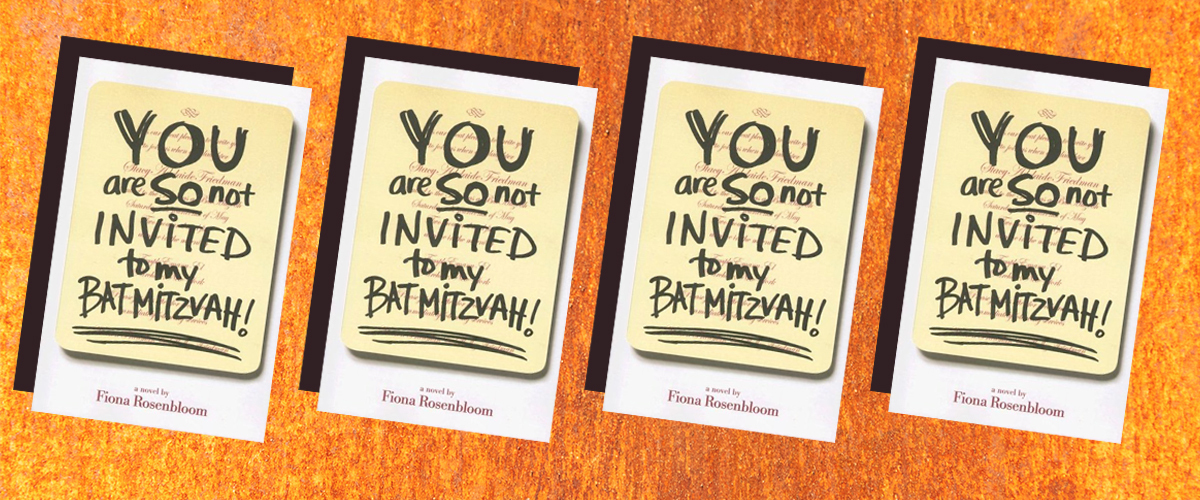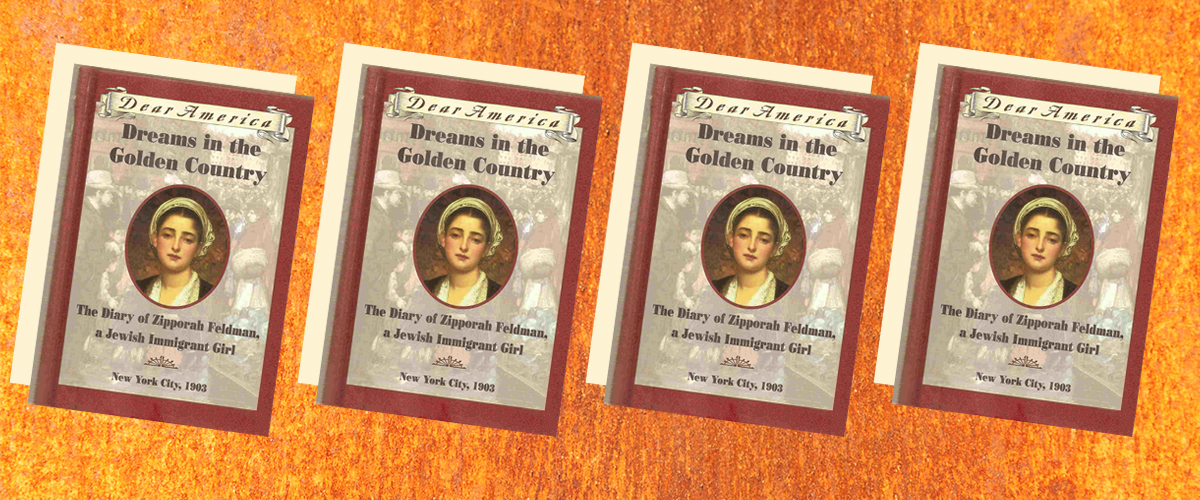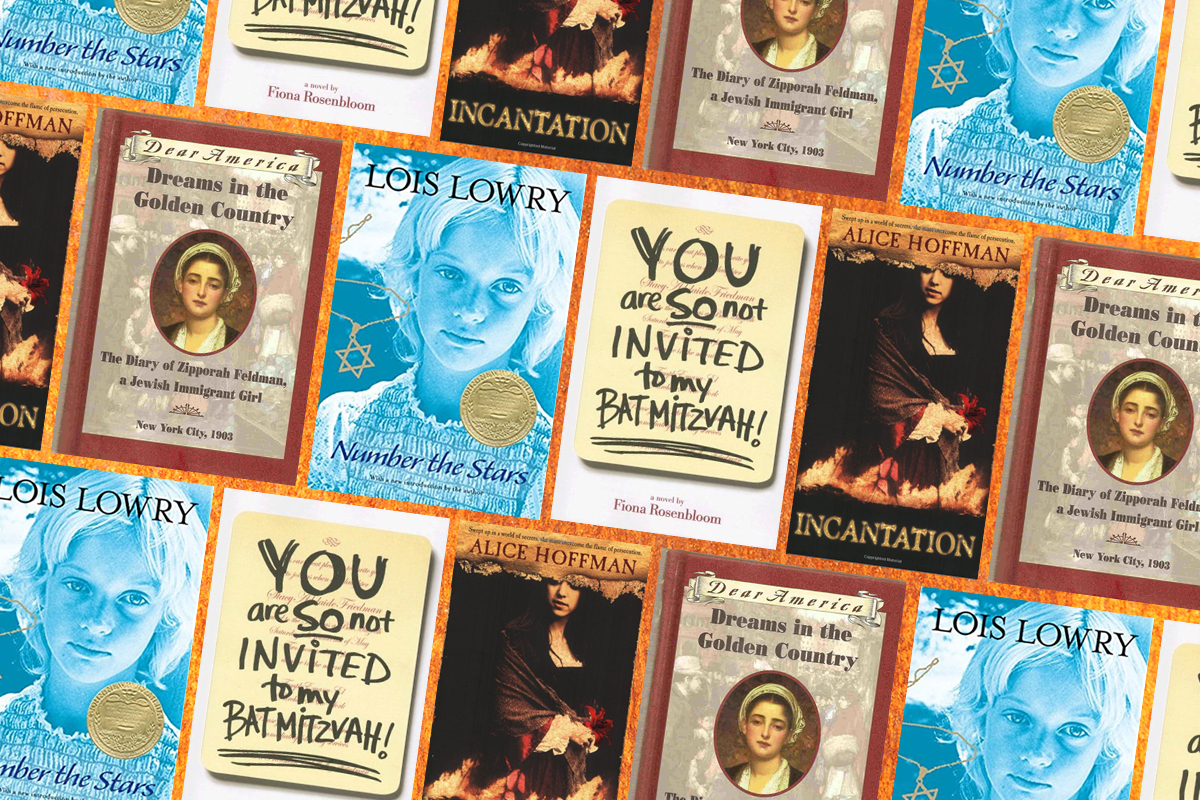If you’re like me, you pledged to read more during the pandemic. If you’re even more like me, as soon as you made this declaration, you agonized for a while over what to read, gave up, and then turned back to Netflix.
Well, after much consideration, I’ve decided that everyone should be reading the greats, the (kosher) foie gras of the literary canon: Jewish young adult novels from the ‘90s and early 2000s. As a former shy child, thus an expert in this field, let me give you a brief dissertation on my personal favorites.
You Are SO Not Invited to My Bat Mitzvah! by Fiona Rosenbloom
2005

Much like The Great Gatsby or Middlemarch, You Are SO Not Invited to my Bat Mitzvah! is a masterpiece of its time. Engulfed in all its mid-2000s glory, complete with references to Ashlee Simpson, Delias, and Nokia phones, this novel tells the story of Stacy Friedman, a girl preparing for her bat mitzvah.
What I Got Out Of It: Subconsciously, You Are SO Not Invited to My Bat Mitzvah! appealed to my sensibilities because normal, modern Jewish life was on display. I had never encountered a book where the Jewishness in context was the same Jewishness I experienced in my everyday life. That said, closer to the front of my tween brain were other reasons why I liked the book. First, it was filled with the teenage girl drama my life lacked, and second, I was a touch-starved, horned-up little Jew that craved reading about kissing and boys. You Are SO Not Invited was able to satisfy on all fronts, and for that, it is a mensch.
Does It Still Hold Up: Predictably, this book is fun to revisit because of all the mid-2000s nostalgia and simultaneously hard to revisit for the same reason. Stacy’s best friend Lydia is mocked for “lesbionic behavior” when she isn’t initially interested in boys. As a mitzvah, Stacy decides to help her 10-year-old brother lose weight — even though his weight doesn’t bother him. And the author makes Andy Goldfarb, Stacy’s crush, speak exclusively in African American Vernacular English (AAVE), without really explaining why he shouldn’t be. Still, I can recommend this as a nostalgia read for Jewish millennial/Gen Z cusps, like myself, but only while using a critical eye.
Incantation by Alice Hoffman
2006

Cue the Mel Brooks, it’s THE INQUISITION! Incantation is about a 16-year-old girl named Estrella living during the Spanish Inquisition, who learns that her family are Marranos, or secret Jews. As Estrella learns more about her Jewish identity, she must hold on to that secret in order to survive.
What I Got Out Of It: Incantation is the only Jewish novel I encountered during my young adulthood that told a story of Sephardic Jews. Though the author is not Sephardic herself and there isn’t a great focus on Sephardic tradition in the book, Incantation was still a stepping stone for me. Through it I was encouraged to learn more about Sephardim and open my eyes to a world beyond ashkenormativity.
Does It Still Hold Up: I would recommend this book to teens (if I know any teens) with one caveat. At the end of the book, as Estrella is forced to flee Spain without her family, she learns “a Jew can never be attached to a place…We cannot have roots in the earth of any country, only in the garden that we carry inside us.” While I still appreciate the historical significance of the book and what it did for me, I think that’s a message which readers should interrogate.
Dreams in the Golden Country: The Diary of Zipporah Feldman, a Jewish Immigrant Girl
1998

For the uninitiated, the Dear America series were faux diaries of young women living throughout periods in American history. It’s like American Girl but replace the dolls with tales of smallpox. As a kid, I loved all of their novels, but especially Dreams in the Golden Country. This installation of Dear America focuses on a Russian-Jewish girl named Zipporah Feldman who immigrated to the Lower East Side of Manhattan in 1903.
What I Got Out Of It: As Zipporah struggles to adapt to daily life in America, she also realizes that she wants to be an actress. Now level with me: Have you ever met a Jewish girl who doesn’t want to be an actress? It’s impossible. They’re like unicorns, they don’t exist. Even as a Jewish adult woman, a part of me still wants to dedicate my life to the stage. Because of this, Dreams in the Golden Country made me feel seen, however silly the reason.
Does It Still Hold Up: Unfortunately, I realize now that Dear America plays into an American mythos that I don’t agree with. However, as a standalone novel, I think Dreams in the Golden Country is still a great read. For Americans of Ashkenazi descent, it tells a familial story. For Jews who are not, American or otherwise, it highlights a critical moment of identity formation for American Jews. (Plus, in the epilogue it’s revealed that Zipporah’s great-granddaughter was an actress in Jesus Christ Superstar which I think is an incredible made-up factoid to throw in at the end of a book with no other explanation.)
Number the Stars by Lois Lowry
1989

For lack of a better description, Number the Stars is the Stefon’s club of Jewish YA novels, because this book has everything: The Danish Resistance, mysteriously dead older sisters, dogs sniffing cocaine, Great Aunt Birte?! Number the Stars finally answers the question: Is it possible to have a novel about the Holocaust that is both educational and not devastatingly sad? (Yes.)
What I Got Out Of It: Number the Stars is one of the first chapter books I ever read, let alone books about the Holocaust. Since then I’ve read many other YA books about the Holocaust, and while all are important, so many focus on pain and suffering. Personally, I need mental health breaks from that. Number the Stars remains refreshing because it focuses on the triumph of humanity, while also not dumbing down the intensity and fear permeating Nazi-occupied Europe.
Does It Still Hold Up: Number the Stars was awarded the Newbery Medal in 1990, and far be it from me to disagree with that award committee. I have no qualms about this book! Mark this day in your calendars, folks! A Jewish woman has no qualms!
So, dear readers, I hope you are wandering in a desert of indecision no longer. Besides, even if you don’t pick up any of my suggestions, at least you read this article! Personally, I think that counts.



